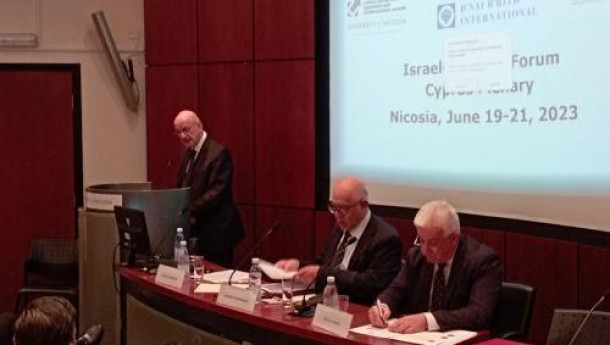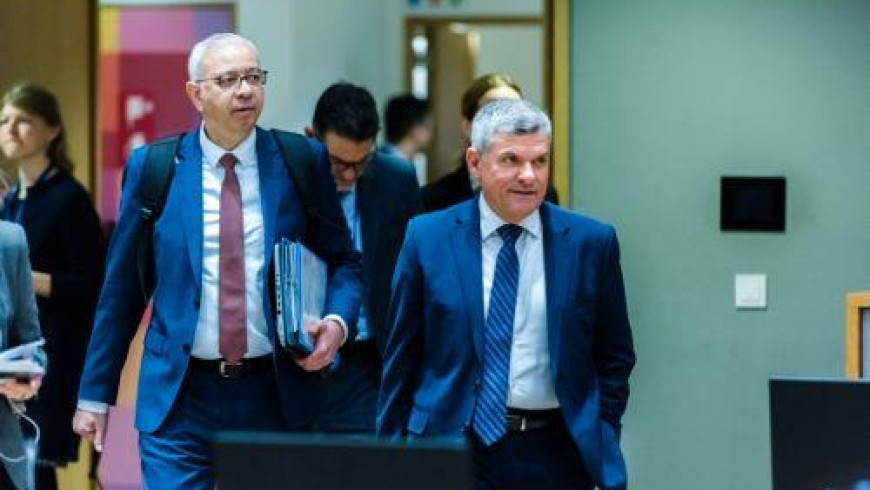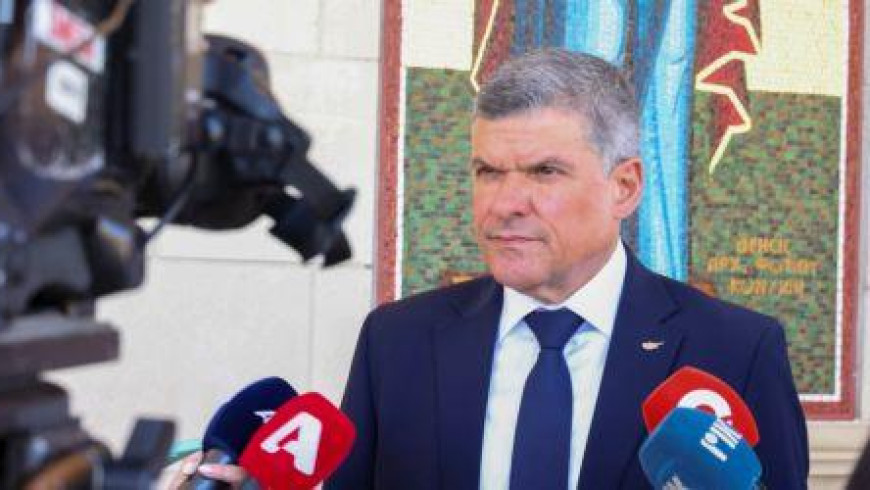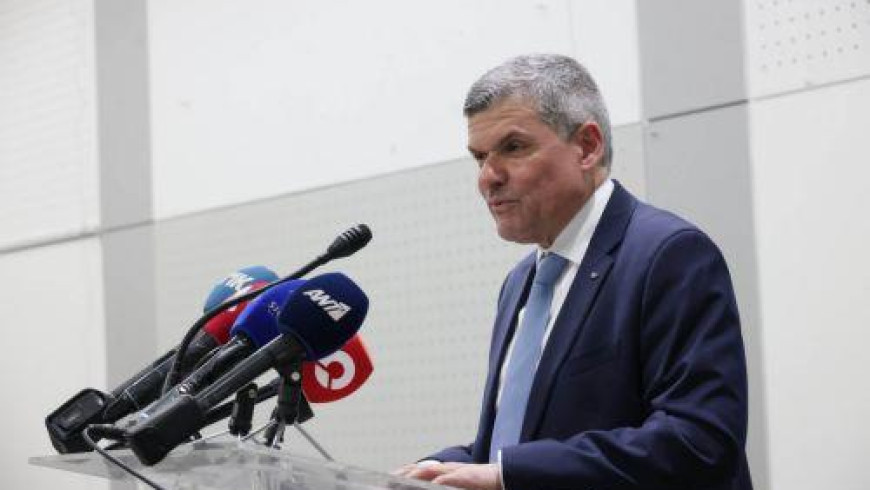
There is no limit to the friendship and cooperation between Israel, Cyprus and Greece, said partners of the Israel-Hellenic Forum on Monday, held between June 19 and 21 in Nicosia, while also stressing the role academic institutions and think tanks play in the international market of ideas.
President of the Cyprus Center for European and International Affairs of University of Nicosia, Professor Andreas Theophanous, said in his speech that it was essential to have such events and Fora in which ideas and perspectives are put forward and discussed in detail.
He referred to the current state of affairs in the international environment due to Russia’s invasion of Ukraine, the sanctions against Moscow, and the European aspirations for a security architecture without Russia as well as to end Europe’s energy dependence on Russia, noting that these developments have far reaching implications, while the eastern Mediterranean and the broader Middle East were also affected. These are some of the issues this Forum will address tomorrow, he added.
He also referred to the Cyprus problem and said that it was essential for consistency in the actions of major powers when international law is violated, noting Turkey has been more or less, tolerated for its actions, as regards Cyprus. Theophanous also stressed the role of academic institutions and think tanks in addressing the Cyprus question, as well as major issues including foreign policy and the economy. He said that, over the years the State has underestimated the role their own academic institutions and think tanks may play in the international market of ideas. It is not a coincidence that currently, Cyprus has no effective and consistent narrative at the political level, he said.
Closing, he expressed the hope that the state as well as the business community would “eventually realise” that supporting the world of think tanks was a necessity and not a luxury.
Daniel Mariaschin, CEO of B’nai B’rith International and Convener, said they were cooperating once again with the Cyprus Center for European and International Affairs, and the Institute for International Relations, in bringing together experts and advocates for strong relations amongst Cyprus, Greece and Israel. There are many reasons for doing so, he said, such as regional rivalries, threats to stability in the region including from terrorist organisations, commercial relations, and energy, noting that the speakers will address all of these challenges and more.
He referred to the Greek-Israeli relations and said that today, they have transformed into close ties on a broad front, for energy, military, tourism, high tech, and that the blossoming of ties of Greece, Cyprus and Israel is reflected in the close working relationships that the B’nai B’rith and other organisations have established with the Hellenic American communities, including with AHEPA, to know each other better, to meet with government officials and policy makers, and discuss about common challenges they face in the broader American scene. Mariaschin said there was no limit to their friendship and cooperation and that they were proud to be partners in building these relations.
Director of the Institute for International Relations (IDIS) of the Panteion University, Professor Kostas Ifantis, who is also Scientific Director of the Centre for Foreign Policy Planning of Greece’s Ministry of Foreign Affairs, said in his welcome address, that this meeting was timely as political, economic and geopolitical developments are unfolding, also affecting the eastern Mediterranean and the Middle East.
He noted that they were fully aware of regional dynamics and challenges and expressed the conviction that discussions in the next two days would be fruitful and exciting, adding that this was hardly surprising given the quality and quantity of expertise gathered in the room. Ifantis also said that expectations were “genuinely high” and that it was time to be bolder, more innovative with their contributions and to come up, with more ideas for more substantive engagement.
B'nai B'rith World Center – Jerusalem Director Alan Schneider, said participants in the plenary session were to discuss “where our neighbourhood is going, collectively and individually”, with the help of leading officials and foremost experts from the three countries, noting that they were the three democratic, peace-seeking nations of the eastern Mediterranean.
He thanked all those who accepted their invitation to join in the Forum discussions and expressed his “deep and sincere gratitude” to Professor Andreas Theophanous for the organisation of this plenary session.
Cyprus has been divided since 1974, when Turkey invaded and occupied its northern third. Repeated rounds of UN-led peace talks have so far failed to yield results. The latest round of negotiations, in July 2017 at the Swiss resort of Crans-Montana ended inconclusively.













 3287.99
3287.99 1275.09
1275.09
